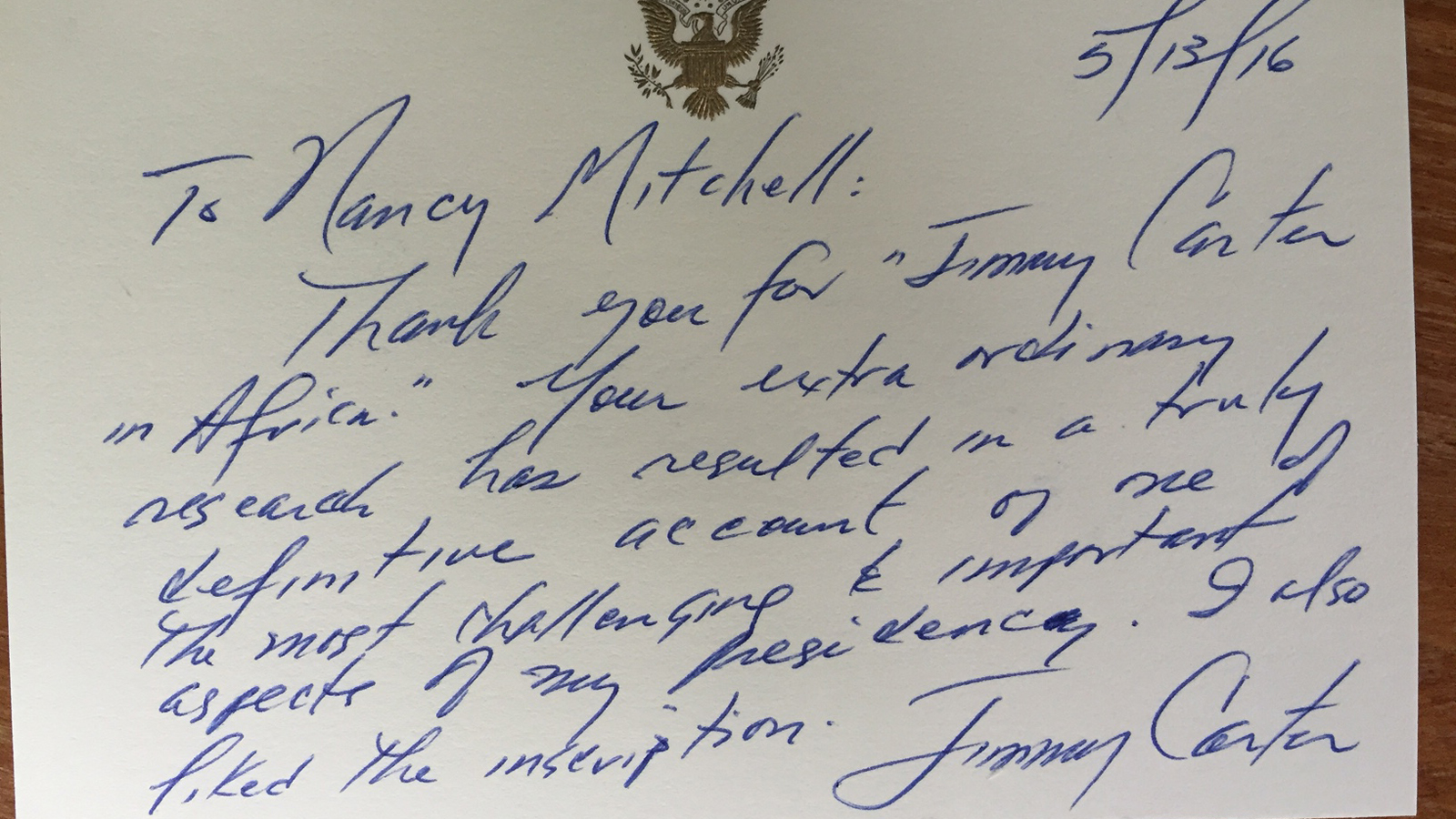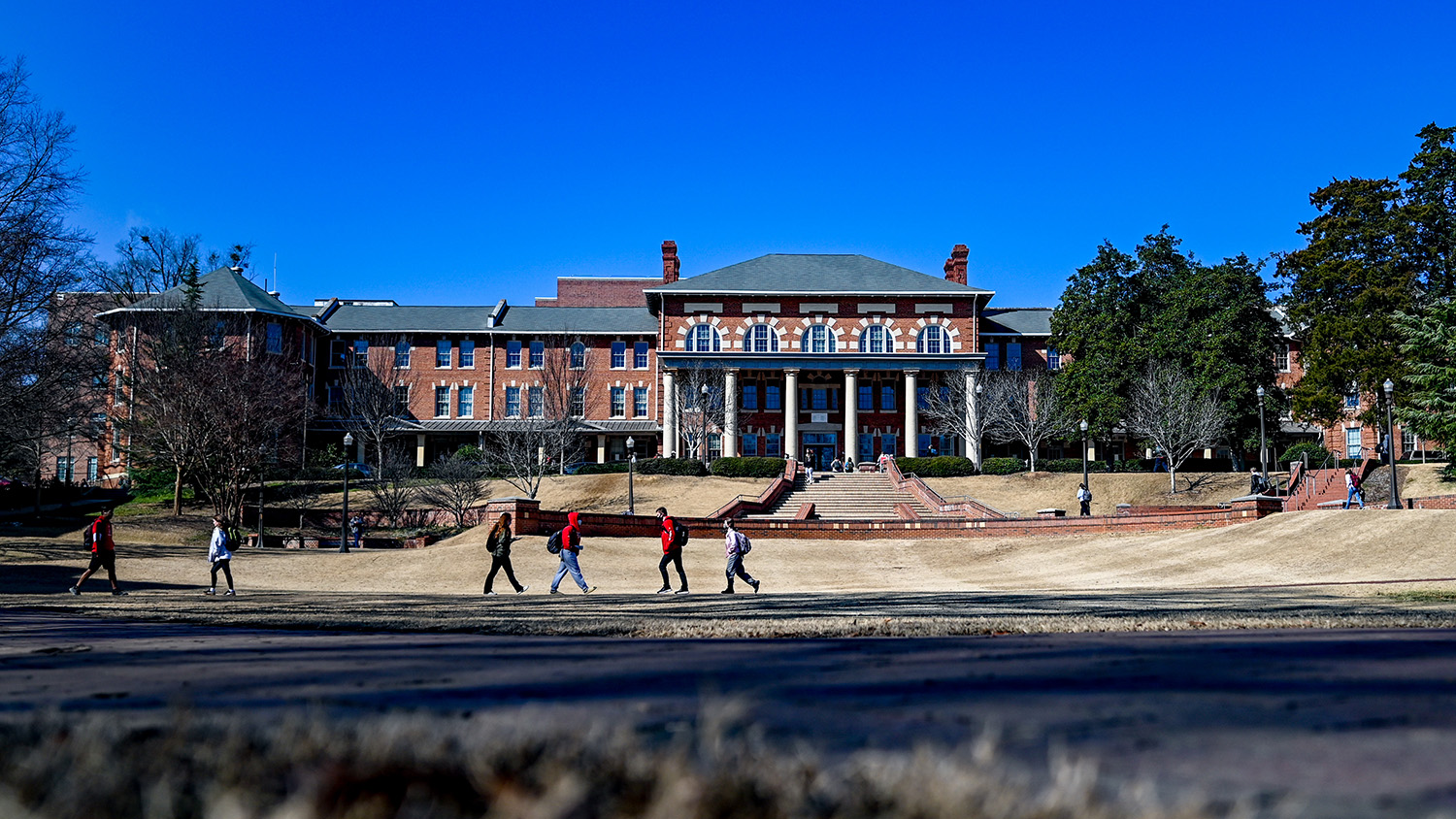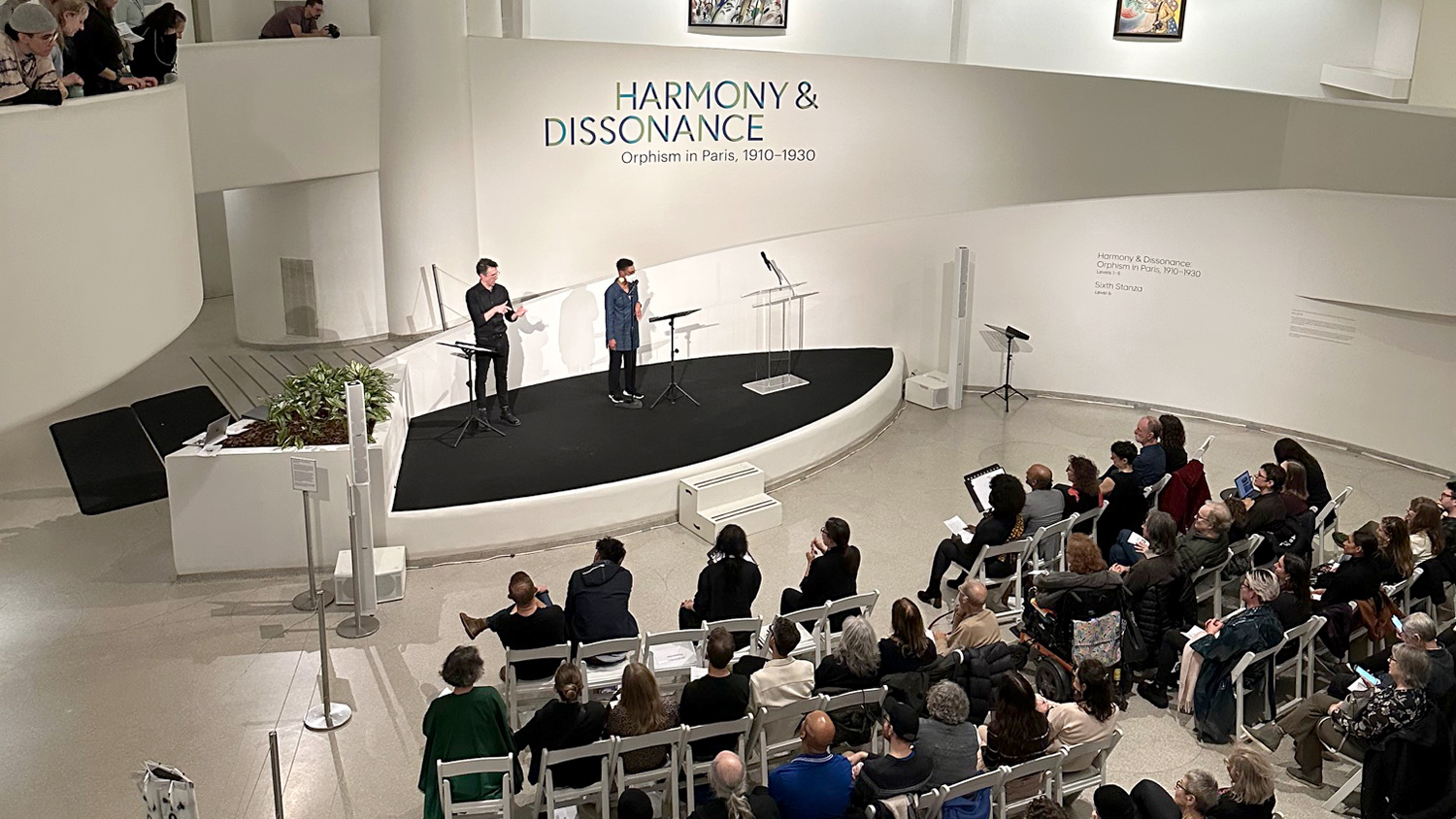Revealing a Different Side of President Carter
Nancy Mitchell lived abroad during the presidency of Jimmy Carter.
Working as an English teacher at an Irish high school in the late 1970s, Mitchell says it was interesting to view the Carter administration from afar. It was also puzzling, she said, why his presidency — and persona — were often defined by their shortcomings.
Now a professor of history at NC State, Mitchell has spent the past 10 years seeking answers about the true nature of the Carter presidency. She’s visited archives around the world: from Britain to Zambia, Canada to Australia, France to South Africa. And she’s interviewed dozens of former politicians, national advisers and world leaders, including Carter himself.

In her new book, Jimmy Carter in Africa: Race and the Cold War, Mitchell draws on her research to reveal a side of the president few have seen. The American Academy of Diplomacy selected the book for its 2016 Douglas Dillon Award, a prestigious honor given to the best book about the process of diplomacy. Members of the Academy, the foremost group of senior retired American diplomats, formally recognized Mitchell’s work at its annual awards luncheon in the fall (see video above).
When presenting the award, former U.S. Ambassador Howard Schaffer said, “Dr. Mitchell’s research is nothing short of awesome. … The result of this research –and her own keen understanding of the issues at stake — is a comprehensive, incisive, and highly readable account of Carter’s policies in Africa and how they were put together. … Perhaps most importantly, she links his approach to Rhodesia with his experience in dealing with the challenges he faced in domestic politics, not least the influence that changing racial contours of American life in the 1980s had on the way he looked at foreign policy issues.”
We caught up with Mitchell about her book, President Carter and his legacy.
Editor’s note: Portions of this interview were edited for length.
Q: What led you to write this book?
A: Initially, I wanted to write an overview of Carter’s foreign policy. However, I eventually realized it made more sense to dig deeper and evaluate the established truths of his presidency. I started to look into Africa for a couple of reasons.
For one, nobody had written about Carter in Africa. Second, during his campaign in 1976 and his first two years in office, Africa was where the Cold War was being fought — it was the heart of the tension and an extremely important place.
When I interviewed him, Carter told me that he spent more time on Rhodesia (now Zimbabwe) than he did on the entire Middle East. And when you go into the archives and look at the administration, there is indeed more on southern Africa than the Middle East. Carter himself was intimately involved in the African policy issues. So, I decided to narrow my research down to the main crises: Rhodesia, where a white minority regime was involved in a civil war against guerrillas backed by the Soviet Union; and the war between Ethiopia and Somalia in the Horn of Africa.

Q: The Christian Science Monitor commended your book for painting a fuller picture of the Carter presidency. How do your findings challenge the traditional critiques about his time in office?
A: Although it’s a book that does clarify the two African crises, the purpose of the book was to dig deep into several different sides of Carter and the challenges he faced. I think I’ve changed the way that scholars will think about Carter in several important ways.
One is that in general people think of Carter in terms of his efforts related to human rights. They tend to think he was a naïf who was not up to task in his efforts to do good in the world. I think that’s a misconception. Carter was very tough-minded. He was a Cold Warrior intent on winning the Cold War and besting the Soviet Union from the very beginning.
Another myth is this idea that he comes in naive, and there’s this arc to the presidency where he gradually figures out the way the world works. But that’s not correct. He was a Naval officer, who came of age in the 1930s in Georgia — a southern Democrat. He was a very conservative guy and saw the world in conservative terms right from the beginning to the end.
Q: What type of contact did you have with President Carter during your research?
A: I was only able to interview him once. He has not given many interviews to historians. He’s not like other ex-presidents. He’s not interested in polishing and spinning what his presidency was like. He’s got more important things to do — that’s the way he looks at it.
He was extraordinarily gracious and his memory was remarkable. I interviewed a lot of people, and they tended to get things garbled in time; they’d often lose track of sequences of events. But he didn’t. He also speaks in complete sentences. People typically don’t speak in English that’s grammatically correct, but boy did he.
There are very few people more opposite of Jimmy Carter than Donald Trump. However, they do share some similarities.”
— Nancy Mitchell
He was wonderful, actually. He lives in Plains, Georgia. But he also has an apartment in The Carter Center in Atlanta. He spends a fair bit of time there. I interviewed him in Atlanta, in his little, modest apartment.
Q: What do you hope readers take away from the book?
A: I hope they take away a more nuanced feel for Carter. This book isn’t pro-Carter or anti-Carter — it’s really trying to be more accurate. I hope people look back and have more questions about the presidency and that other scholars dig into other aspects of the presidency.
I also think this is something that’s very relevant today. There are very few people more opposite of Jimmy Carter than Donald Trump. However, they do share some similarities. Carter was a real outsider to the presidency. There was an “ABC (Anybody But Carter)” movement during his campaign. And he came into Washington not knowing Washington at all. In that way, he’s like Trump.
There’s another way he’s like Trump. Carter is a very difficult person to pigeonhole ideologically. On racial and social issues, he’s very liberal. But on economic issues, he’s conservative. For any decision, it was very hard to know what Carter was going to decide. I think Trump is going to have that same problem in his presidency. Even top advisers, such as Steve Bannon, may not be sure what decision Trump will make, and that means power is going to be overloaded on the president. You’re going to have a situation where the secretary of state is not going to be able to move forward until Trump has spoken. What happens in that situation and what happened to Carter is that all of the decision-making landed on the president’s desk. I think that my book is not just looking back on Carter, but — because of the Trump victory — it has relevance today.
- Categories:



